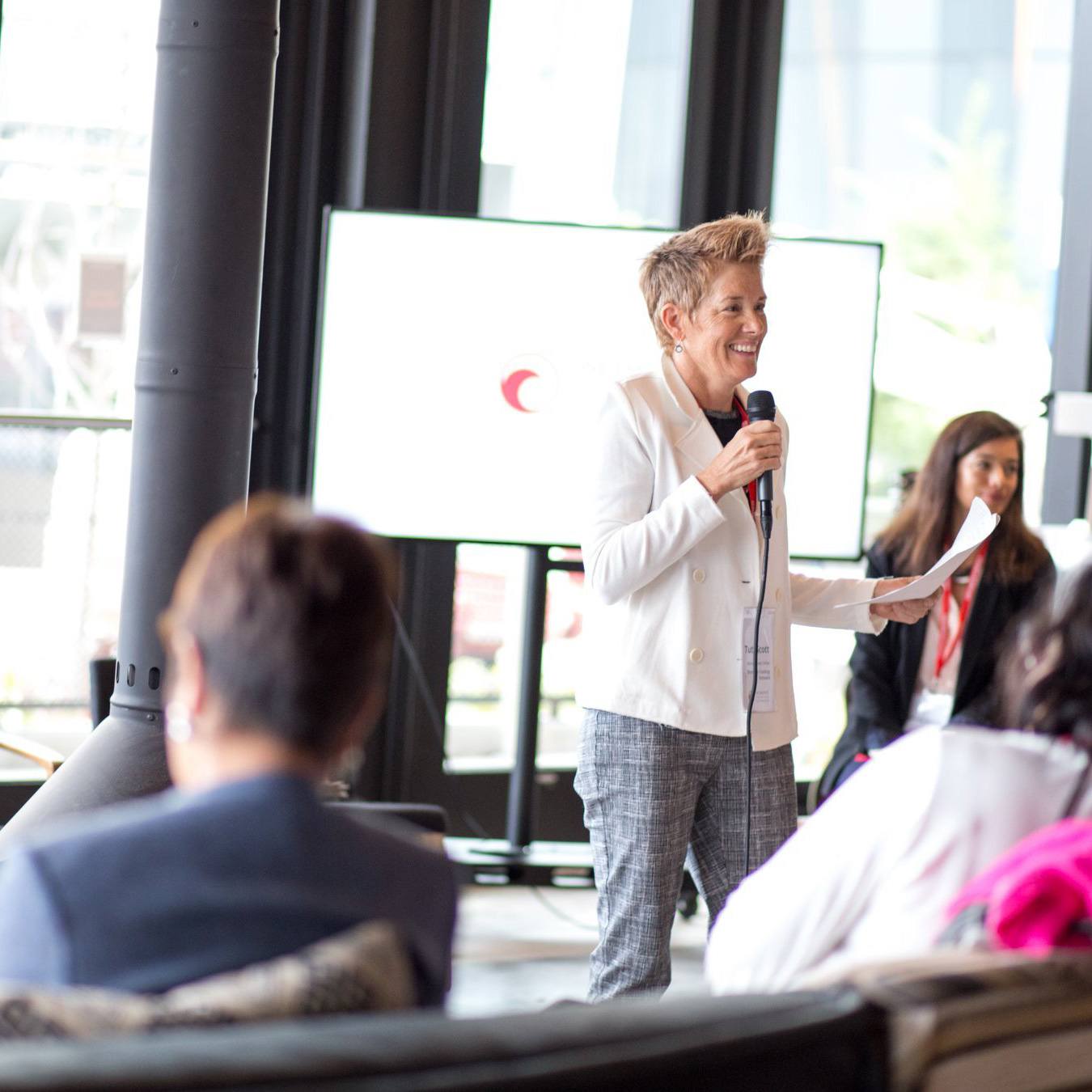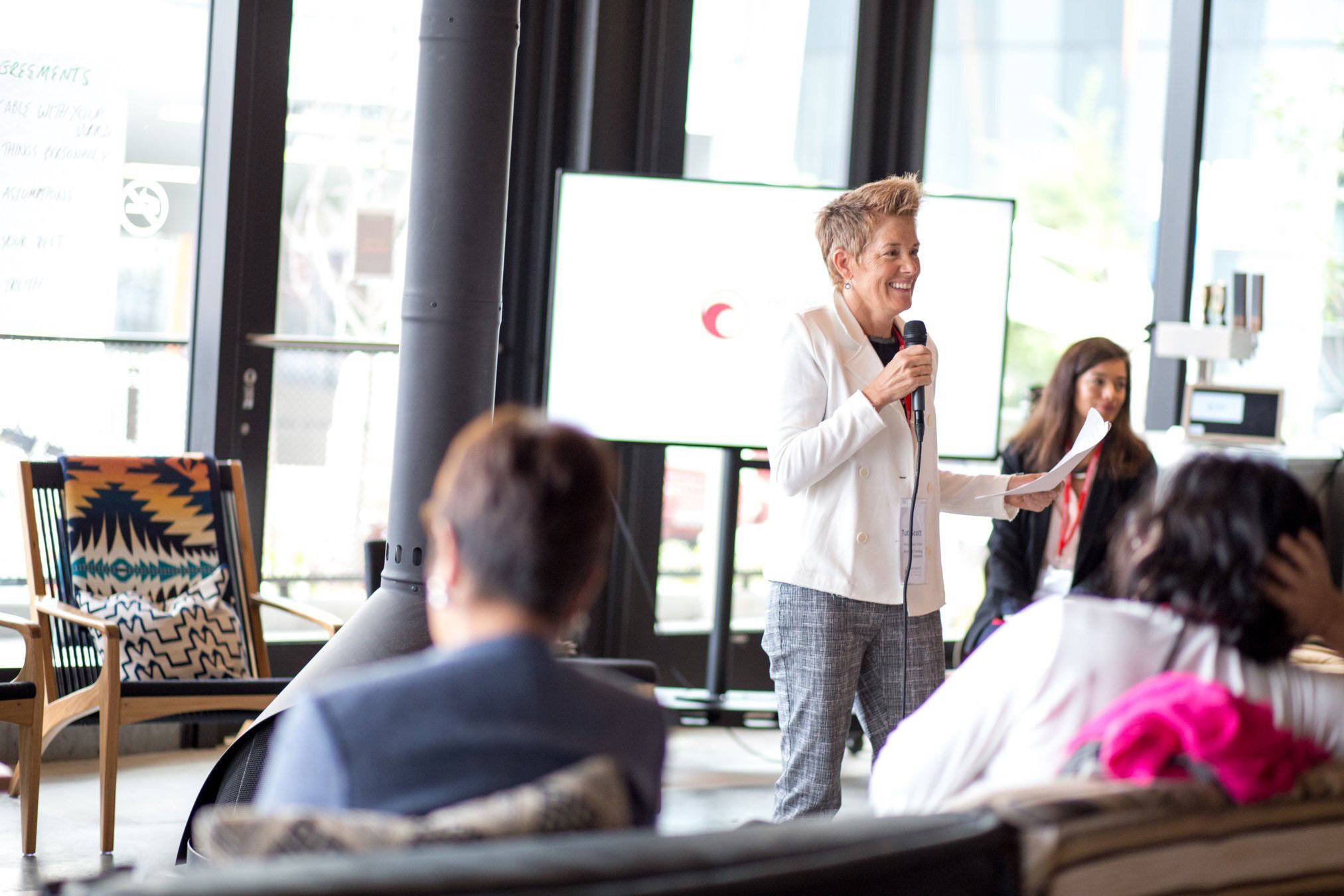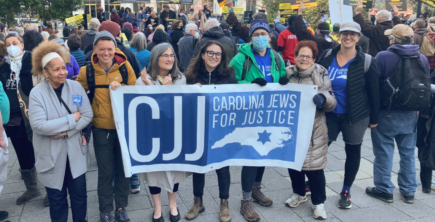
Healthy Individuals & Communities

Before Tuti Scott took on the role as interim CEO for Tides in July 2019, she served as a member of the organization’s board of directors and eventually served as its chair. As a consultant for strategic philanthropy, a coach to high-achieving leaders, and a leader in social justice philanthropy, women’s rights and women’s sports for more than three decades, Tuti brought to Tides her bold, inclusive, and innovative leadership. Her high-energy dance moves and perpetually positive outlook energized Tides’ all-staff meetings and challenged participants to infuse their own light, love, and gratitude into Tides’ meaningful work and the work of partners each day. As she prepares to transition out of her role, Tuti reflects on lessons learned after a decade at Tides—and what she hopes for the future of philanthropy.

Tides is grateful for Tuti’s vivacious energy as an orator and coach to us all.
TS: My intent from day one was to set the new CEO up for success. Some “interims” come in and just keep the trains running. I came in and I painted the train, gave it some new wheels, decided it should run on solar, and put more seats in the conductor cars. That’s what I usually get hired to do as a consultant. And I write reports about what culture and people shifts would best serve the organization. Most of the changes at Tides were about giving people more room and space to be creative to try things out, to lean into their leadership, and to articulate the organization’s purpose and outcomes in our impact model.
TS: We started the process at our July 2019 board meeting when I was board chair, and—after many retreats, conversations, and massaging of language—the impact model was ratified by the board in May 2020. We invited people first to think about the bold outcomes we wanted to see in the world and to talk about “what are the assumptions of our work,” “what is the hypothesis we are testing through our theory of change?” We identified that we are testing the idea that donors want a lot of different strategies to move money for good. We’re also testing the operational idea that if we incubate and support the nuts and bolts operations of social ventures, they can focus on the work and scale social change. And if we are testing those hypotheses, “what is the outcome that we want to see happen in the world?” We talk about shared prosperity and social justice, but what does that look like? It looks like a shift in power and agency. It looks like different kinds of representation than what we have currently. It looks like a different type of transfer of many forms of capital.
TS: I’ve jokingly said that I wanted to come in and do a bunch of podcasts and interview all the project partners and venture philanthropists. I still want to do that! Yet, I realized quickly that this was a much more hands-on role. I didn’t realize the depth of complexity and the inter-departmental reliance within the organization. A challenge in any one department influences the whole of how we show up for our partners. The interdependency of the teams was fascinating to me; our staff thrives on it. I also was in awe at how much work is getting done each and every day. In 2020 we processed 35,000 transactions—everything from grants in and grants out to contracts to payroll, etc. That’s what Tides does. We provide the crucial infrastructure that enables the social change movement, and we make it look easy!
TS: The field itself is slow to move toward trust-based philanthropy. There are far too many conditions given on grant making and not enough trust and respect for the leaders driving the work forward. We should be giving more unrestricted gifts as donors and leading with trust-based, “power with” versus “power over” grantmaking. The people running the work, movement leaders, NGO leaders, and Tides project directors have so much knowledge about where real change can happen and how it needs to happen. When we shift the power and agency to them, we will begin to dismantle structural discrimination. Many in philanthropy weren’t aware of systemic racism until COVID-19 showcased the racial inequities in health care, education, caregiving, the digital divide, etc. I also think the field is still slow to have the values of its investments match the values of its giving. For example, foundation endowments could be invested in fossil fuels, and yet they’re doing grantmaking for environmental justice; it’s incongruent.
TS: Janiece brings a deep knowledge of all the segments Tides serves. She has a passion for purpose-driven work and is prepared to leverage the tools and resources at Tides to redefine philanthropy. With her, we have a leader who will innovate with blended capital and who has the capacity, knowledge, skill set, and humanity to drive Tides’ work and that of our partners forward.
TS: Stay bold. Lift up the movement-builders and policy work because that’s how we’re going to shift the divide in this country. Step up and do what you can to disrupt patriarchal white supremacy. Do it with grace. And I’ll see you on the other side when human dignity is measured with the same intensity as the markets.

Healthy Individuals & Communities

Our Community

Philanthropy

Read the stories and hear the voices of social change leaders fighting for justice.